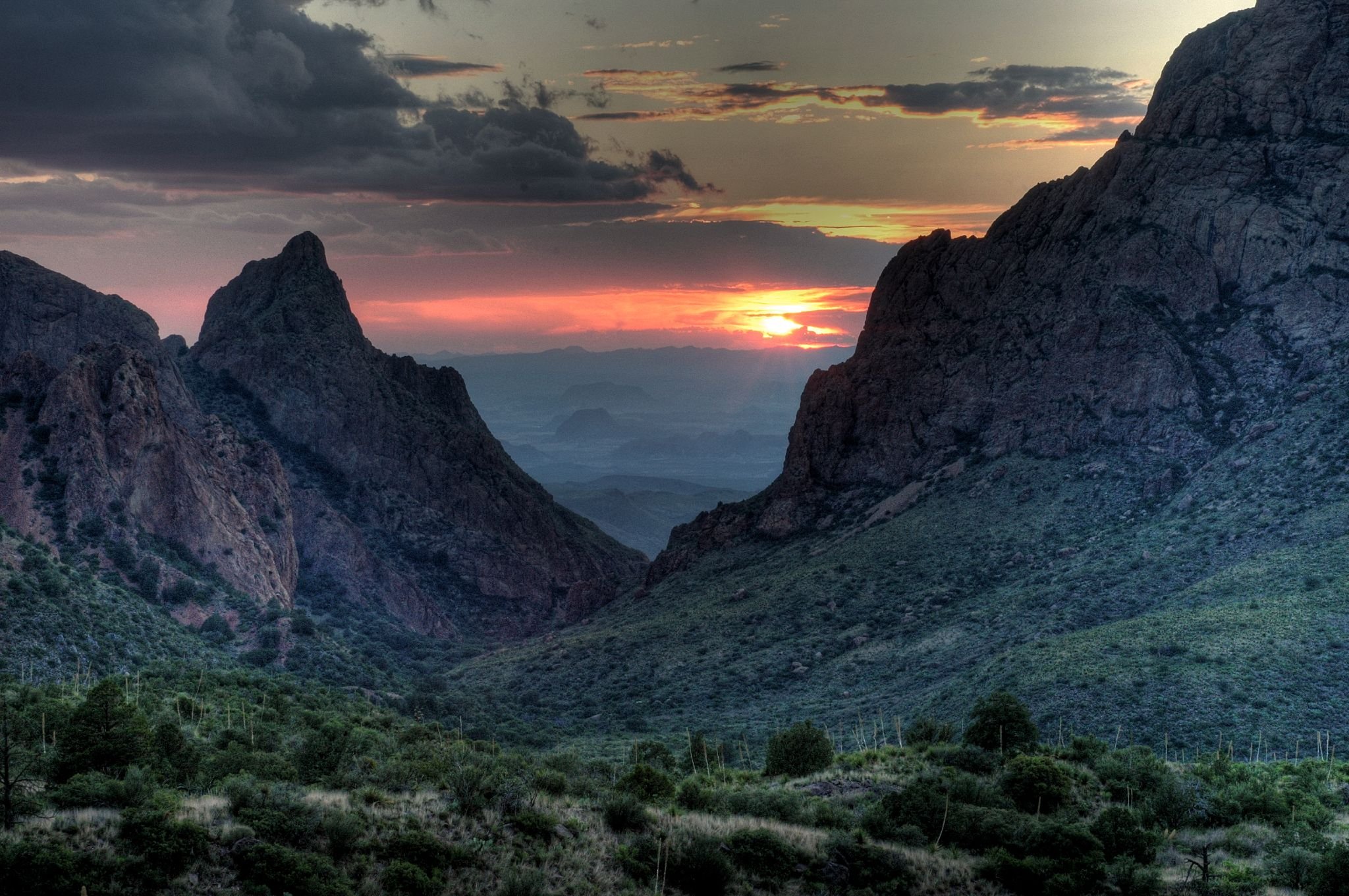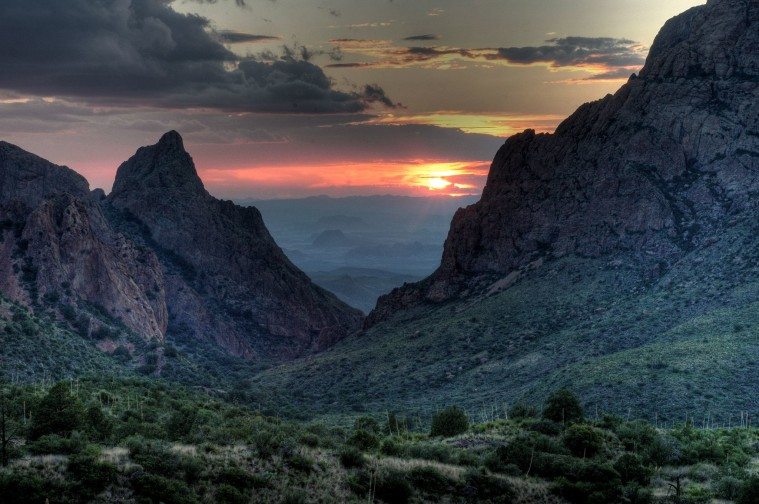
Big Bend Becomes Congressional Battleground
Pete Gallego’s going green in a bid to reclaim the purple district for Democrats.


Last year, freshman U.S. Representative Will Hurd cosponsored a bill requiring the Department of Homeland Security to build close to 200 miles of road in the Big Bend region, giving Border Patrol agents unfettered authority to chop up large swaths of desert wilderness.
So when Hurd posted a video last month espousing the virtues of Big Bend National Park, his opponent, Pete Gallego, a Democrat who represented the district for one term before Hurd, took notice. Gallego’s campaign posted a cheeky attack ad on Facebook in response.
“Yeah, we think Big Bend is indeed awesome,” the ad reads in big block letters. “That’s why we oppose Rep. Hurd’s bill that would destroy the Big Bend … Let’s elect a leader who will *actually* protect the Big Bend.”
With the iconic Big Bend in the crosshairs, voters are likely to see energy and environmental issues take center stage in the race to represent this largely Hispanic swing district.
For the last eight years, the district, which extends from El Paso to San Antonio and along the southwest Texas-Mexico border, has flip-flopped between Republican and Democrat control. Gallego was elected the district’s representative in 2012 when he ousted Republican Quico Canseco, but lost reelection to Hurd in 2014.
Now, Gallego is seeking to win voters back, in part, by attacking Hurd’s environmental record, an unusual move that those who closely follow races in the district say is a departure from politics-as-usual. Gallego’s focus: hammering Hurd on his support for the 2015 Secure Our Borders First Act, which would have installed 192 miles of road in the Big Bend region, along with towers, sensors and drones for surveillance. It gave the Department of Homeland Security (DHS) wide latitude to construct roads and surveillance infrastructure, and allowed the agency to waive compliance with a number of environmental laws, including the Endangered Species Act and the National Environmental Policy Act.
“Whatever people think about border security, most people along the border recognize that you can’t just exempt DHS from environmental law,” Anthony Gutierrez, a spokesman for Gallego’s campaign, told the Observer. “It’s a real dumb idea.”
DHS secretary Jeh Johnson opposed the bill, calling it “extreme to the point of being unworkable.” After the White House issued a veto threat to another border security funding bill, House members decided to postpone a vote indefinitely.
Justin Hollis, Hurd’s campaign manager, said the bill authorized roads in the Big Bend sector, a Border Patrol area that encompasses more than 160,000 square miles and parts of Oklahoma.
“It’s embarrassing that former Congressman Gallego, a man that represented West Texas doesn’t even know the difference between Big Bend National Park and the Big Bend sector for U.S. Customs and Border Protection,” Gollis told the Observer in an email.
However, the bill only authorizes DHS to construct roads on federal land within 100 miles of the border. In practice, it applies mainly to the Big Bend national park. Gutierrez said the Hurd campaign’s arguments that an operation aimed at securing the border would be built anywhere but the border were “unreasonable and disingenuous.”
Gallego’s Big Bend Facebook dig has made the park a key campaign issue in a region facing a number of environmental threats, including the construction of the Trans Pecos pipeline and a proposed radioactive waste dump. Air and water quality risks from fracking in the Permian Basin also persist in the district. However, with many constituents either working for or receiving royalties from the oil and gas industry, politicians — including Democrats like Gallego — have historically been reluctant to campaign aggressively on an environmental platform.
“In that district, oil and gas is not evil. Cheap gas isn’t evil,” said Colin Strother, an independent Democratic political strategist. “In these counties, jobs are at a premium and there’s a certain amount of environmental impact that’s accepted if you can get a good job”
Hurd received a 0 percent rating from the League of Conservation Voters for his 2015 voting record on environmental issues. The environmental group, which has endorsed Gallego, gave the Democrat a 70 percent lifetime rating. He lost points because he supported subsidies for offshore drilling and voted against bills that would have reduced greenhouse gas emissions.
Aside from the border security bill, Hurd was also among the Republicans who voted to end funding for the Department of Energy’s renewables and energy efficiency program, which supports solar and wind energy businesses.
That bill never passed the House, in part, because even conservatives were concerned it went too far, potentially killing solar and wind energy jobs, said Alex Taurel, the deputy legislative director for the League of Conservation Voters. Hurd’s vote on the renewable energy bill shows he “is completely out of touch with his constituents in a state that leads the nation on wind energy,” Taurel said.
The candidates have also supported significantly different approaches to the controversial Trans Pecos pipeline. At a town meeting in Alpine last May, where locals raised questions about the environmental impacts of the pipeline, Hurd told constituents that he would listen to their concerns and pass on their questions to the pipeline company, Energy Transfer Partners, but stopped short of saying he would support efforts to block the pipeline. That didn’t play well with many of the landowners who were trying to stop the pipeline construction altogether.
Gallego, on the other hand, has advocated putting the pipeline project on hold while state and federal agencies audit the project for compliance and community members debate the benefits of the project with the company.
“People are upset with [Hurd],” said Brian Shugart, a former National Park Service employee who opposed the border bill in an Alpine Avalanche opinion piece. Shugart pointed to Hurd’s vote to expedite the regulatory approval process for energy projects and restrict the Department of Energy’s authority to examine the environmental impacts of natural gas projects as further evidence that the congressman was failing to represent his district faithfully.
“He’s not voting for the interest of his constituents,” Shugart said.
Whether the Big Bend debate will bend the district blue remains to be seen.
[Correction: A reference to the Amistad National Recreation Area has been removed. The section of the Secure Our Borders First Act referring to the Big Bend sector does not authorize road construction in the Amistad NRA.]


